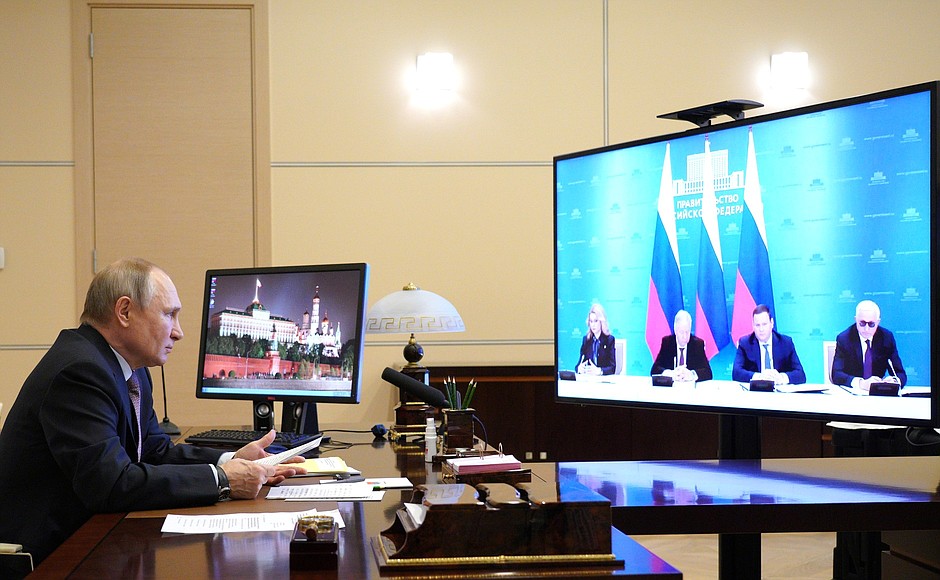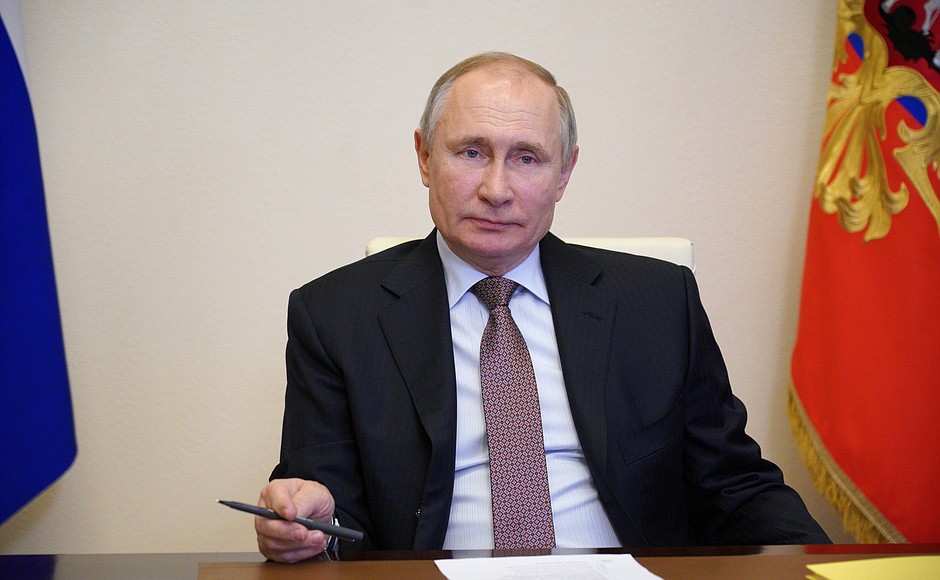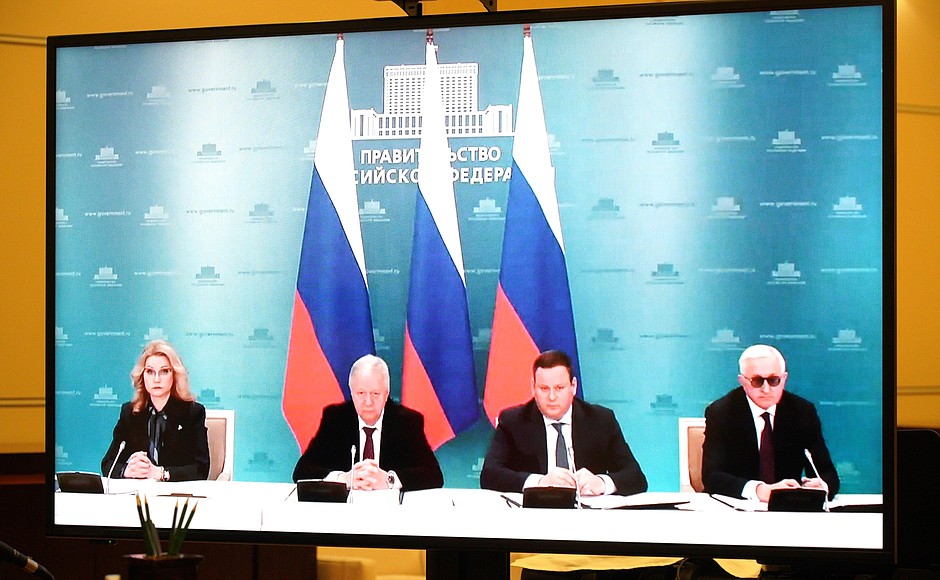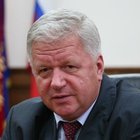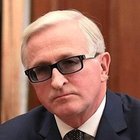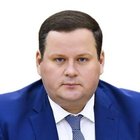Chairman of the Federation of Independent Trade Unions of Russia Mikhail Shmakov, President of the Russian Union of Industrialists and Entrepreneurs Alexander Shokhin and Minister of Labour and Social Protection Anton Kotyakov signed the Agreement. The ceremony was also attended by Deputy Prime Minister and Coordinator of the Russian Trilateral Commission on Regulating Social and Labour Relations Tatyana Golikova.
The agreement formalises at the federal level the principles of regulating social, labour and associated economic relations between trade unions, employers and the executive branch for the next three years.
* * *
President of Russia Vladimir Putin: Good afternoon, colleagues, friends.
I would like to welcome all the participants in this signing ceremony for the 14th General Agreement between trade unions, employers’ associations and the Government.
Indeed, this is a document of great social significance. The Agreement concerns the interests of more than 70 million Russian citizens employed in different sectors of the economy and the social sector. We must continue this partnership in order to fully protect and guarantee the labour and employment rights of our people.
I would like to take this opportunity to praise the constructive help that the Russian Trilateral Commission provided to the Government during the epidemic, including the Commission’s involvement in developing crisis response measures to support our citizens, small businesses and the most affected industries in general.
Certainly, the leaders of trade unions and representatives of the business community, the Russian Union of Industrialists and Entrepreneurs, have done a lot to ensure workforce retention, and this was our main task. They have also worked hard to help people and medical personnel. Thank you very much for all this.
Indeed, you have proved your commitment to the values of social partnership in an extraordinary situation. I am confident that such mutual understanding will serve as a solid foundation for addressing joint tasks in the interests of the country’s citizens.
I would like to focus on the main aspects here. First, we have to restore the labour market to 2019 levels. We are constantly discussing this matter with the Government, and the task can primarily be accomplished through expanded business activity, by investing extra assets in jobs and through investment.
Several weeks ago, we met with representatives of the national business community. I would like to underscore the fact that our colleagues have the desire, as well as substantial resources, to invest in new projects.
I would also like to add that the state will support entrepreneurs who provide employment to people who lost their jobs last year. To be more exact, the state will reimburse part of the cost of the wages of these workers. Their employers will get three minimum wages per worker over a period of six months.
At the same time, it is necessary to use all available tools, including remote work mechanisms in order to create jobs and thereby allowing people, regardless of their age, place of residence or health restrictions, to earn money and to obtain worthy incomes, and their labour rights should also be reliably protected.
On the whole, all the decisions have already been made, and we have to fulfil them and monitor their implementation.
Secondly, I suggest studying the possibility of expanding easy-term treatment and rehabilitation programmes for workers at trade-union and corporate health resorts and holiday hotels. The trade unions retain a large chain of these institutions. First of all – I believe you will agree with me – these vouchers should be issued to people who had severe cases of COVID-19, who have suffered from major complications. We simply have to support these people under a special procedure.
On the whole, I am asking you to focus on improving employees’ health, and this certainly includes preventive checkups and support for mass sport.
Third, it is necessary to step up joint efforts by domestic companies, the trade unions, and WorldSkills so that people have access to retraining programmes that would help people acquire additional skills or a new specialty, allowing them to use the advantages of technological progress to broaden their professional and career prospects.
For our part, this year we will certainly help the most vulnerable in the labour market to upgrade their skills. These are mothers with small children, pre-pensioners and people with disabilities.
I would like to make a special point. Everything that we are doing together – taking care of the health of our people, creating jobs, and providing retraining opportunities – is subordinate to the main goal: to ensure that people live a better life, earn more and improve their wellbeing.
Let me recall that we have halved the fiscal load on medium and small companies. This decision – let me say it again – is long-term and we are not going to abandon it. Naturally, we hope for reciprocal steps on behalf of businesses. Mr Shokhin, we expect businesses to meet us halfway, notably, that the resources thus saved will be used to increase wages and salaries for employees.
But, of course, I would like to emphasise that we must strive to increase people’s real incomes, and this directly depends on an economic upsurge and the observance of macroeconomic parameters. We will expand opportunities for business initiatives and the sustainable growth of industries and enterprises and practically resolve the issues of labour relations. The Russian Trilateral Commission must take part in drafting specific steps and measures to support workers.
This is what I would like to say in conclusion. Respect for the working people, social partnership and economic solidarity are the main principles that we introduced into the updated Constitution. It is necessary to make these constitutional provisions work in every region, branch, city and in specific teams of workers and at plants and factories.
The Government, trade unions and employers must work as closely together as possible, as true partners.
Colleagues, I would like to congratulate you on today’s event and wish you this kind of coherent work. Needless to say, in the current conditions it would be appropriate to wish you excellent health and wellbeing.
Let us proceed to the ceremony. Go ahead, please.
<…>
Vladimir Putin: Indeed, social partnership is extremely important for all of us, including the business community, trade unions and, all the more so, for the Government because this social partnership hinges on common goals, the target of which is to achieve well-being for the citizens of this country. Yes, of course, businesses aim to obtain profits, at first glance. But a normal and modern person, a present-day entrepreneur realises that the unimpeded extraction of profits, this naked, wild and wooly capitalism is absolutely unacceptable because this eventually leads to the destruction of society, the state and businesses themselves, unless business people care for the people, the workers. This is like an auto-da-fé, like shooting oneself in the leg or the head.
By the way, the same goes for the trade unions because absolutely groundless demands, based on outright populism alone, also lead to the destruction of enterprises and businesses that create jobs. Of course, these demands should be based on expert assessments. Despite the somewhat fierce debate, and I know only too well that there was some rather fierce debate, and although trade unions voice different and sufficiently tough positions, while defending the interests of the working people during this work, everyone is eventually guided by expert assessments, and this concerns the Government, in the first place.
Consequently, this amounts to really difficult and large-scale efforts, and such a job has been completed today. I would like to thank you for this and to congratulate you on this occasion. This is a serious stage in our common efforts to expand the economy and the country’s social sector.
Thank you.
